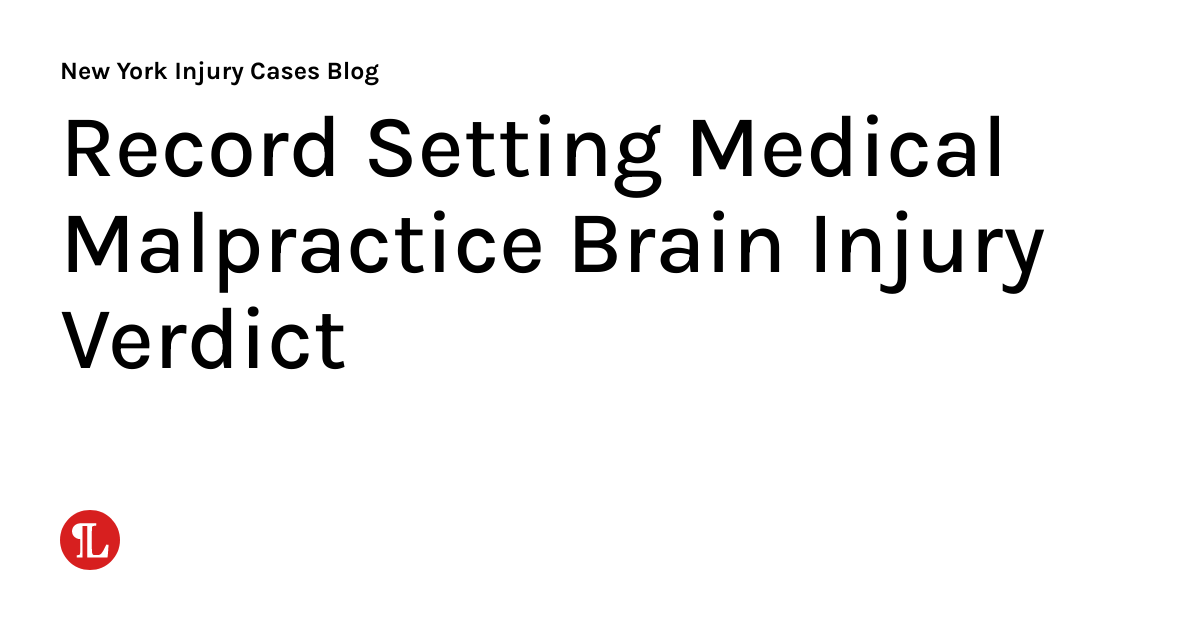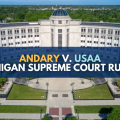On November 27, 2018, at 3 a.m., then 41 year old William Lee, fell in his bathroom at home in Elmsford. His wife Anna heard the thud, ran to the bathroom and found her husband convulsing on the floor. She called 911. When the ambulance arrived, EMS suspected a stroke and Mr. Lee was rushed to Westchester Medical Center (a certified national stroke center).
Mr. Lee was diagnosed with a severe stroke and a CT scan angiography was performed that showed a basilar artery occlusion that was stopping blood from getting to the brain. Tragically, though, the doctors at the hospital that morning were inexperienced (there was no board certified radiologist) and they misinterpreted the scan resulting in a three and a half hour delayed diagnosis of the occlusion.
As a result of the delay, Mr. Lee became and remains unable to care for himself, has profound cognitive deficits, does almost nothing without prompts to guide him, has dementia-like symptoms with no short-term memory, and spends his days mostly sleeping, eating and watching television all while fully aware of the fact that he has a brain injury, cannot do the things he used to do, is frustrated and sometimes destructive and has young children who are afraid of him.
Mr. and Mrs. Lee sued the hospital and the doctors claiming that although he came into the hospital with a stroke, their negligence was a substantial factor in depriving him of a substantial chance for a better outcome and resulted in his sustaining permanent and massive brain injuries and needing lifetime residential facility care.
In Lee v. Westchester County Healthcare Corp. (Supreme Court Westchester County, Index #50914/2020), the jury upheld the plaintiffs’ claims and returned a verdict on November 30, 2023, awarding pain and suffering damages in the sum of $51,000,000 ($9,375,000 past – five years, $41,625,000 future – 33.3 years).
The jury also awarded damages (a) to Mrs. Lee for past medical expenses and household services she incurred for her husband in the sum of $550,000, (b) to Mrs. Lee for the loss of her husband’s services and society in the sum of $51,000,000 ($9,375,000 past – five years, $41,625,000 future – 33.3 years). and (c) to Mr. Lee for his anticipated future medical costs in the sum of about $18,000,000 (mainly for residential facility care at about $500,000 a year for 33.3 years).
While the jury was deliberating, plaintiffs and the hospital entered into so-called high-low agreement that provided for the hospital to pay (a) $10,000,000 in the event of a defense verdict or a damages award of $10,000,000 or less, or (b) the amount awarded by the jury if between $10,000,000 and $30,000,000 or (c) $30,000,0000 or if the jury award were more than $30,000,000.
Inside Information:
- Plaintiffs’ lead counsel, Ben Rubinowitz, widely regarded as one of best trial lawyers in New York, brilliantly focused his closing argument on Mr. Lee’s awareness of his massive injuries and his inability to resume being a husband to his wife and a father to his young children. He asked the jurors if they could think of anything worse in the world than knowing that one has children and a wife but that he cannot care for them.
- Prior to the verdict, one of the defendant doctors, a neurologist, agreed to settle for $1,900,000 to resolve the claim against her that once the blockage was properly diagnosed she prescribed the wrong blood thinner medication.
- The damages award in this case is the largest medical malpractice verdict in the history of Westchester County.



